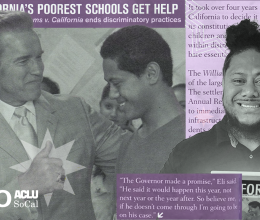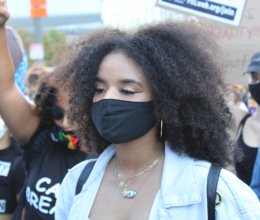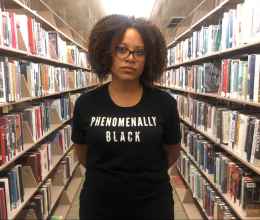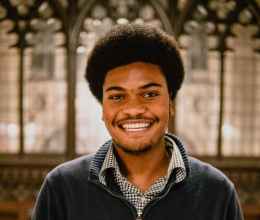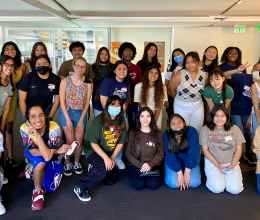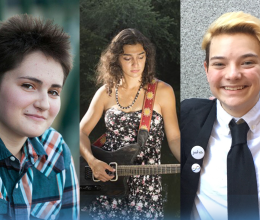
LOS ANGELES ? Attorneys for special education students and their parents filed a formal complaint today with the Consent Decree Administrators overseeing the Chanda Smith consent decree, an agreement requiring Los Angeles Unified School District to identify and educate special education students in a manner consistent with state and federal special education and civil rights laws.
The Chanda Smith consent decree was reached in 1996, when the District, faced with copious evidence of its noncompliance with special education and civil rights laws, settled with the parents and students who charged that special education students were being deprived of their right to an education.
The formal complaint, which comes at a time when District officials have publicly backed away from the decree, will challenge the District to fulfill the promises it made, promises that remain only partially fulfilled. Board of Education members were also formally notified that they face contempt proceedings in the matter.
The plaintiffs in Chanda Smith are represented by the American Civil Liberties Union of Southern California, Protection and Advocacy, Inc., Newman. Aaranson. Vanaman and Crosby, Heafey, Roach & May.
"The complaint filed today details a deliberate, massive and wholesale breakdown of compliance with the decree, an about-face by the district of its court-ordered duties and responsibilities to provide equal education as mandated by federal law to 80,000 special ed students and their families," said Mark Rosenbaum, Legal Director of the ACLU of Southern California.
"The lesson that this Superintendent has taught the District?s students is that promises are made to be broken and that the District?s 3-Rs for special education students are renege, resist and regress," said Rosenbaum.
Civil rights attorneys have worked with the district since 1996 to develop numerous plans, listing activities which the District promised to carry out to better serve special education students. The District has yet to carry out many of those activities, including:
failure to implement an information management system as specified in the consent decree
failure to provide required speech and language services to thousands of students
failure to fully implement a telephone helpline in the District's primary languages
failure to fully institute required campus compliance reviews
failure to fully train on-site special education compliance teams
failure to fully institute on-site inventory system for resources necessary to carry out Individualized Education Programs (IEPs) for students
failure to fully implement training for staff to provide translation and interpretive services
failure to involve parents as specified in the parent participation plan
"Even though the District has been under the scrutiny of the Chanda Smith consent decree for five years," said Robert M. Myers of Newman. Aaranson. Vanaman, co- counsel for the plaintiffs, "much remains to be done before it fulfills its obligations to special education students. There is no reason to believe that the LAUSD will complete its reform if it evades the enforcement mechanisms through which parents and other school stakeholders can currently hold it accountable."
The letter sent to the Board today details the history of the consent decree and the litigation which led to it, including the numerous failures federal monitors identified in a 1996 review of the district's special education compliance, including a failure to identify students in need of special education, a failure to assess their needs within legal timelines, failure to provide needed services on time or sometimes at all, failure to track students' educational history adequately, and more.
The letter also describes a recent shift in the LAUSD's attitude toward the case, which signals a clear break from the District's policy of cooperation and working collaboratively with parents.
"Now is not the time to abandon the progress that has been made and undo the consent decree," said Catherine Blakemore, Executive Director of Protection and Advocacy, Inc. "Parents, students, and other stakeholders in the district have a lot invested in the Chanda Smith consent decree. The plans developed under the decree represent steady, hard, collaborative work among the groups involved in solving the problems that special education students have historically encountered in Los Angeles Unified School District."
